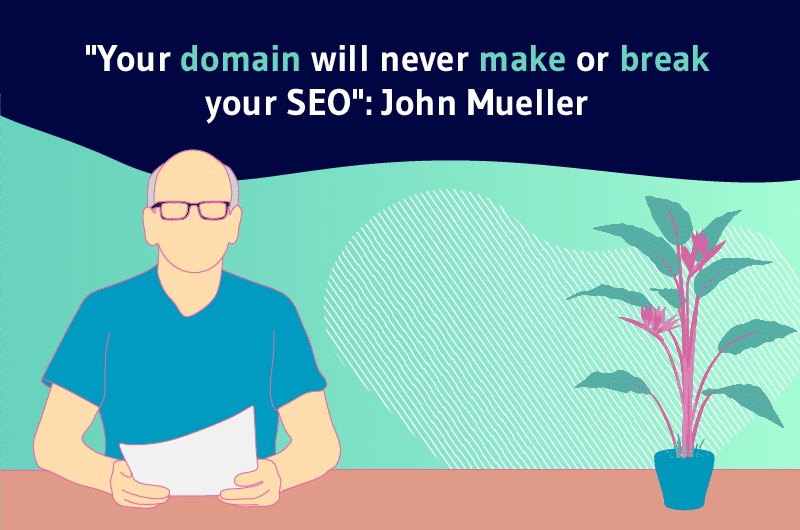The question of whether or not to use hyphens in a domain name and their impact on SEO has always been a hot topic. But what is the reality?
Although Google has often downplayed the impact of hyphens on SEO, the question has been raging for years.
Recently, the issue resurfaced on X, formerly known as Twitter. Google spokesman John Muller gave a clear and unequivocal answer.
In this article, we’ll find out Mr. Muller’s answer, including whether to add hyphens to your domain name and their impact on SEO.
Follow along!
What does Google think of hyphens in domain names?
John Mueller recently contributed to a discussion on domain names and SEO. The discussion, which took place on Mastodon, began as a question about the issue of a hyphen (-) in a domain name.
Google’sJohn Mueller shared several tips on whether or not to use hyphens in domain names.
He pointed out that :
“A #seo question from the X-Twitter world: In the domain name, is the use of hyphen ( – ) recommended or not?
– Very good
– Choose a domain name for your brand for the long term, don’t just collect keywords (the usual reason for hyphens). Build a domain.
– For SEO, hyphens are very slightly better in URLs than underscores. But don’t change your URLs. Don’t use spaces, commas, colons, etc. in URLs.
– Your domain name will never make or break your SEO.“
John Mueller – Mastodon

To this question, the bottom line is:
- It’s acceptable
- You need to get a domain name for your brand for the long term, and not just collect keywords (which is why you need hyphens in domain names).
- You need to build your domain.
For SEO, hyphens are slightly preferable to underscores in URLs. But don’t change your URLs for that. It’s also advisable not to use spaces, commas, colons or the like in URLs.
Keywords in domain names
Your domain name will never have a major impact on your SEO. Of course, Mueller’s assertion sparked some debate on Mastodon.
A user called Nick responds to John by saying:
“A domain will never radically affect your SEO… However, it’s helpful to choose one that matches key searches. A name without a hyphen is better than a name with, but a name with the right keyword is better than a name without a hyphen without the right keyword.”
John insisted again, saying,“I don’t think either is true. Froma branding or marketing point of view, maybe (for example, if you have the URL in an offline ad, it may be easier to remember). I’d say the SEO effect is less than mentioning the word on the page, and at this point, is it still worth focusing on? And yes, I know, SEOs sometimes focus on the little things, but TBH, it’s extremely ineffective and reputation-damaging.“
Another SEO expert joins the debate and says:
“Aslong as keyword domains work, people will use them. Maybe Google can do away with this bonus?“
To his question, John replied:
“Do they really work, though? I’d say it’s more a question of ‘keyword in domain‘ plus ‘there’sa lot of other SEO stuff we do‘ and I don’t think you can disassociate the effect of a word in domain. It might be nice for the brand, it might be memorable, but I don’t think you get any real measurable SEO benefit from it. It would be really strange to do that, anyone can buy a domain name, it’s not a sign of relevance.“
In summary
To conclude, remember that it’s possible to use hyphens in keywords, but don’t do it for keywords, as it has no impact on your site’s SEO. To keep up with the latest news from Google like this one, subscribe to our newsletter to receive our articles in real time.



